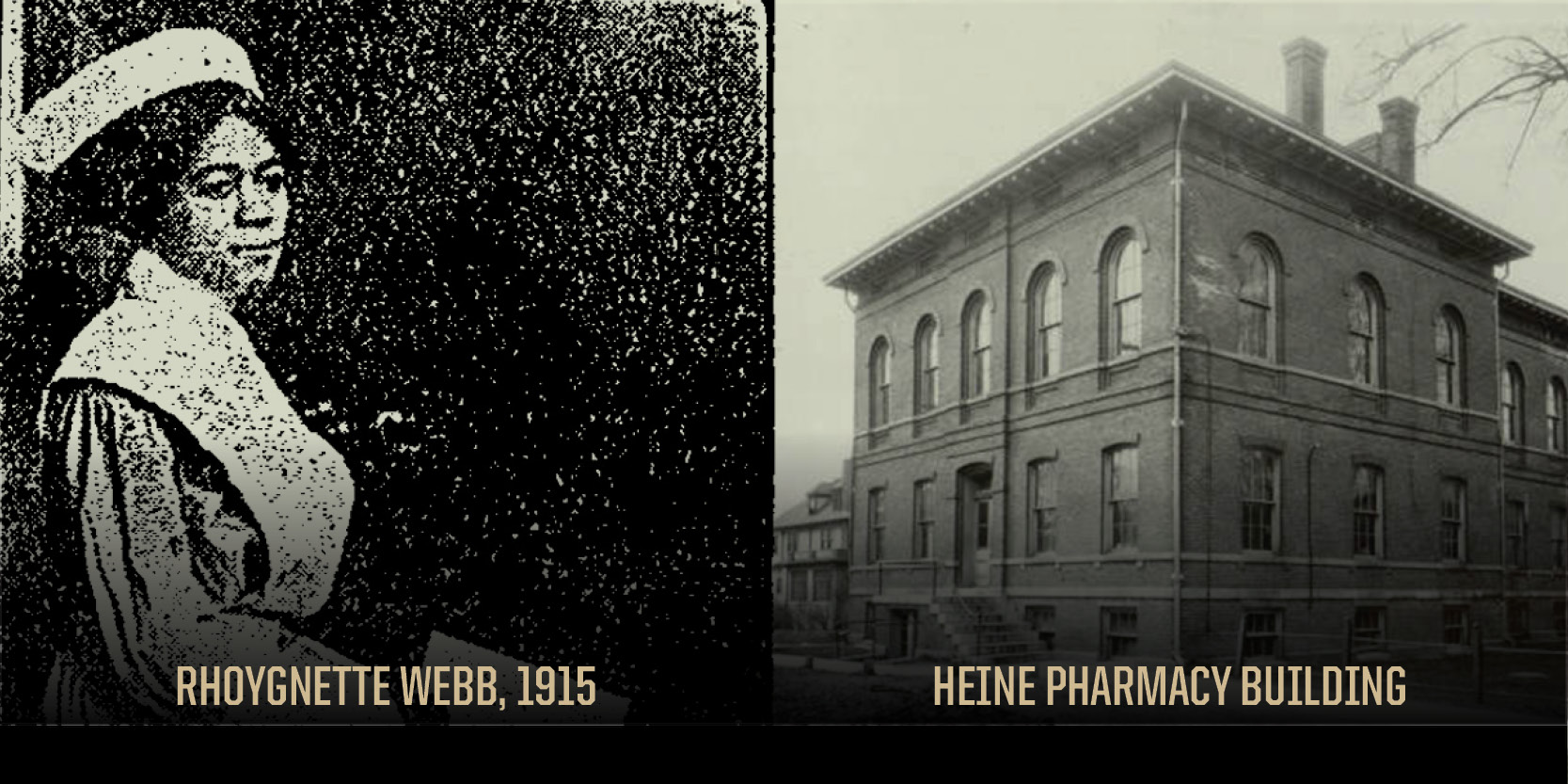June, 2020
Rhoygnette Webb left a lasting legacy at Purdue

By Matt Schnepf
When Rhoygnette Webb enrolled in Purdue University’s School of Pharmacy in the early 1900s, she took important first steps toward building a rich legacy.
Adriana Harmeyer, Purdue’s archivist for University history, recently identified Webb as the first female African American student. Harmeyer discovered Webb’s name while researching and writing the book “Purdue at 150: A Visual History of Student Life.” A 1909 issue of the Exponent student newspaper had named Webb as an officer for the Dubois Club, an organization of African American students inspired by the work of W.E.B. Du Bois, a founder of the National Association for the Advancement of Colored People.
“Webb’s name among the club’s officers jumped out at me and made me want to learn more,” Harmeyer says. “At that point, the earliest African American female students we had identified by name attended Purdue in the 1920s, so a student from 15 years earlier was an exciting discovery.”
In her quest to learn more, Harmeyer spent two weeks following the trail of various resources and then conducted additional searches over the next year and a half to fill in gaps. Several factors complicated this work. During Webb’s years on campus, female and minority students often were left out of campus-wide activities; also, minority students often were banned from living in residence halls. Therefore, their names don’t always appear in records of student life. In addition, at that time, the School of Pharmacy was frequently considered to be separate from Purdue.
Records from 1910 show Webb living in Peru, Indiana. Following her days on campus, she made a significant impact in the health care field in Chicago, when the majority of working African American women there filled domestic roles. She became one of the first graduates of the Provident Hospital nursing school, the nation’s second such school for African American women. Eventually, she served African American patients as head nurse at a sanitarium in nearby Evanston, Illinois.
“Rhoygnette Webb was clearly a young woman who knew what she wanted and made it happen. She left her family to attend a university that at that time was not a traditional choice for female students or minority students,” Harmeyer says.
Sammie Morris, head University archivist, notes: “The people in Purdue’s past are critical components of our history, and for the past several years, the Archives staff has been working to identify early students who broke barriers and succeeded despite the odds being against them.” In recent years, Purdue Archives has focused on identifying students who were the firsts of their kind — by gender, race, nationality, sexuality or other qualities — to enroll or graduate from particular programs … or the first students to advocate for positive change.
Renee Thomas, director of the Purdue Black Cultural Center, believes highlighting Webb’s achievements and impact will positively influence the next generation of bold thinkers and world changers. “Her story of determination will create hope and inspiration for Purdue students who seek to become better through perseverance,” Thomas says. “Ms. Webb’s story celebrates and reclaims the contributions she made. As we celebrate her ‘giant leap,’ it provides context and historical reference for the possibilities of current student achievement.”
Read more about the story of finding Miss Webb.
Related info
Read more about finidng Miss Webb's story.

